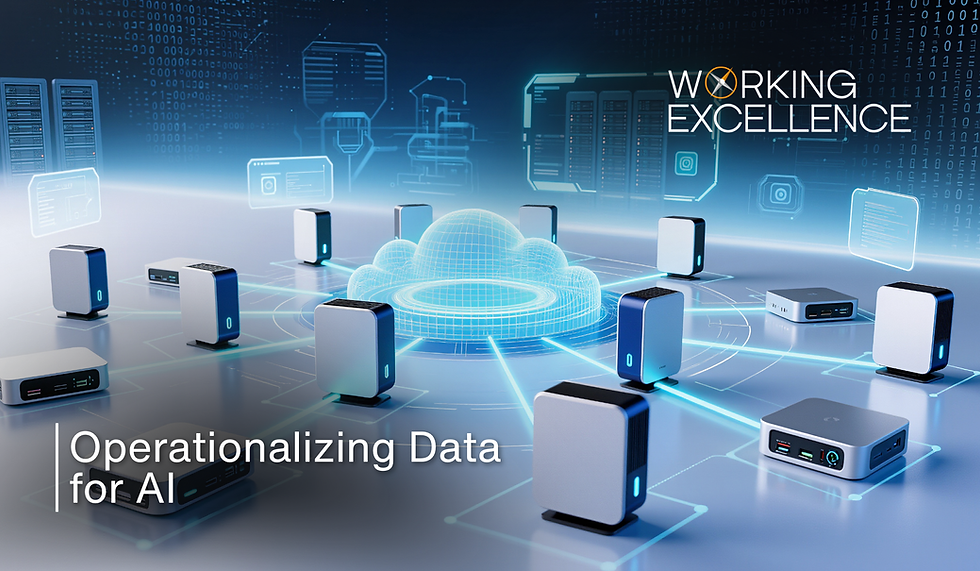Unlocking the Future: Generative AI's Economic Potential and Market Growth
- Jerry Garcia

- Nov 27, 2024
- 3 min read
Updated: Jan 18, 2025
The rapid evolution of generative AI is reshaping industries and driving significant economic growth. Recent reports highlight a staggering increase in enterprise spending on generative AI, reflecting a shift from experimentation to implementation. As businesses recognize the transformative potential of this technology, the global economy stands to gain trillions in value.
Key Takeaways
Generative AI spending surged from $2.3 billion to $13.8 billion in 2024.
The technology could add $2.6 trillion to $4.4 trillion annually to the global economy.
Major investments from tech giants like Amazon signal a competitive landscape.
Generative AI: A Game Changer for Enterprises
Generative AI applications, such as ChatGPT and Claude, have captured widespread attention due to their ability to perform complex tasks, including text generation, data analysis, and creative content creation. This technology is not just a novelty; it is becoming integral to business strategies across various sectors.
The Menlo Ventures 2024 report indicates that enterprise spending on generative AI has increased sixfold, with organizations moving beyond pilot projects to embed AI into their core operations. Key sectors leading this charge include:
Healthcare: $500 million in spending.
Legal Services: $350 million.
Financial Services and Media: $100 million each.
Economic Impact of Generative AI
The economic implications of generative AI are profound. Research estimates that this technology could contribute between $2.6 trillion and $4.4 trillion annually to the global economy. This potential growth is driven by several factors:
Increased Productivity: Generative AI can automate routine tasks, allowing employees to focus on higher-value activities.
Enhanced Decision-Making: By analyzing vast amounts of data quickly, generative AI supports better business decisions.
Cost Reduction: Automating processes can lead to significant cost savings for organizations.
Major Investments Fueling Growth
Tech giants are making substantial investments in generative AI, further fueling its growth. For instance, Amazon's recent $4 billion investment in Anthropic underscores the competitive landscape. This partnership aims to leverage AWS's cloud capabilities to enhance Anthropic's AI models, positioning both companies at the forefront of the generative AI revolution.
The Future of Work with Generative AI
As generative AI continues to evolve, its impact on the workforce will be significant. The technology is expected to:
Transform Job Roles: Many tasks currently performed by humans may be automated, leading to shifts in job responsibilities.
Create New Opportunities: While some jobs may be displaced, new roles focused on managing and developing AI technologies will emerge.
Require Reskilling: Workers will need to adapt to new technologies, necessitating training and development programs.
Conclusion
The rise of generative AI represents a pivotal moment in the evolution of technology and its integration into the economy. As businesses invest heavily in this technology, the potential for economic growth and transformation is immense. However, stakeholders must also address the challenges and risks associated with this rapid change to ensure a balanced and inclusive future.
Sources
The economic potential of generative AI: The next productivity frontier, McKinsey & Company.
Menlo Ventures’ 2024 State of Generative AI Report Reveals 6x Spike in Enterprise Spending as Market Leaders Shift, GlobeNewswire.
Amazon to invest another $4bn in generative AI company Anthropic - DCD, Data Center Dynamics.
Amazon Stock: Tech Giant To Invest Another $4 Billion In AI Startup Anthropic | Investor's Business Daily, Investor's Business Daily.
Introducing generative AI troubleshooting for Apache Spark in AWS Glue (preview) | AWS Big Data Blog, Amazon Web Services.



